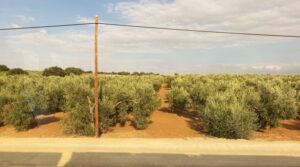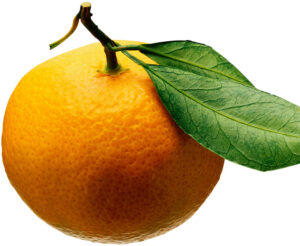Olives and oranges
Robin Gale-Baker, from Sustainable Macleod, discusses olives and oranges. This is one of a series of articles she has written about growing fruit trees (see right hand sidebar). She has also written a number of articles about growing various vegetables, growing various herbs and general growing techniques.
 Travelling through Morocco and Spain by train, my husband Paul and I were struck by two landscapes: the olive landscape and the orange landscape. Trees proliferated from train line to horizon, row after row, monoculture at its most obvious. In both Spain and Morocco, olive trees predominated. In Spain, olives gave way to oranges in some regions while, in Morocco, they tended to be on smaller parcels of land. We concluded that olives and oranges require similar soil and climatic conditions.
Travelling through Morocco and Spain by train, my husband Paul and I were struck by two landscapes: the olive landscape and the orange landscape. Trees proliferated from train line to horizon, row after row, monoculture at its most obvious. In both Spain and Morocco, olive trees predominated. In Spain, olives gave way to oranges in some regions while, in Morocco, they tended to be on smaller parcels of land. We concluded that olives and oranges require similar soil and climatic conditions.
Both oranges and olives require well drained soil and neither will grow well in clay or water-logged soil. They prefer acidic-neutral soil and, as long as the 
 soil is well endowed with minerals, they are not further fussy. If deplete, fertilising with an organic fertiliser containing 10% nitrogen is recommended. To grow well, especially as young trees, and when flowering and fruiting, both need regular water. Mature olives, older than 5 years, can withstand several weeks without water as they prefer to dry out between soakings. Oranges, however, need more regular water as their roots are shallow and the juiciness of their fruit can be compromised. Inadequate rainfall and a lack of ability to irrigate are significant risk factors for both crops in Mediterranean countries.
soil is well endowed with minerals, they are not further fussy. If deplete, fertilising with an organic fertiliser containing 10% nitrogen is recommended. To grow well, especially as young trees, and when flowering and fruiting, both need regular water. Mature olives, older than 5 years, can withstand several weeks without water as they prefer to dry out between soakings. Oranges, however, need more regular water as their roots are shallow and the juiciness of their fruit can be compromised. Inadequate rainfall and a lack of ability to irrigate are significant risk factors for both crops in Mediterranean countries.
Both olives and oranges thrive in hot, dry summers and cold winters. Both need full sun, preferably 8 hours a day, but high temperatures can burn the fruit and ruin the harvest. In 2023, the orange crop was damaged in this way resulting in higher prices for oranges and orange juice in many countries that import from Spain and Morocco. Olives suffered a poor harvest, with a resultant price rise in olive oil putting it out of reach for many Spanish and Moroccan locals.
Spaniards now often buy local sunflower oil because it is so much cheaper. Spain is in fact the third largest consumer of sunflower oil and is increasing its hectarage by 4-5% annually. It is also the largest producer of olive oil, outstripping Italy.
To plant an olive tree, dig a hole wider than the root ball and plant it without adding compost or organic material, so that the top of the root ball is slightly above the soil. Oranges require a hole about twice as wide as the root ball all round, and the root ball surface should be in line with the soil surface. Digging a furrow around the dripline is wise as this allows water to soak through to where the roots extend. As the trees’ dripline fans out, you need to carefully create another furrow for water without damaging the shallow roots and it’s best to do this by hand.
A problem in both countries is that weeds are removed beneath and between the trees by mechanical means, supposedly to preserve moisture in the soil. Essentially, the trees are growing in bare soil which is prone to erosion and the soil structure is constantly being destroyed. Rainfall then runs off, does not soak into the soil or reach the root zone. Mulching to inhibit weed growth is recommended by some agronomists but we saw no evidence of this. It was perturbing to see so much bare soil.
Our observations in Spain and Morocco led us to reflect on what is happening in Australia. No doubt most people who use olive oil will have noticed a steep increase in price over the last few years and might also be aware of the tonnes of oranges that are destroyed in Australia annually because of slight skin blemishes or odd sizes that do not meet supermarket requirements. Buying local is a sensible response to these issues and, where possible, from local markets and suppliers rather than supermarkets. Local olive oil will be less expensive and our olive and citrus farmers need all the support they can get. After all, if we grow our own we eat odd sizes and don’t worry about a blemish or two.
